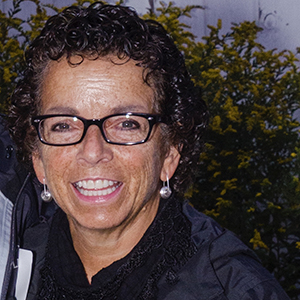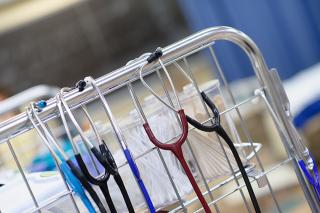
After only a minute of speaking with Nancy Ravin '81, it was obvious that her spirit has not been brought down by this pandemic. A graduate of the Class of 1981 with a BS in nursing, Nancy is now working on the frontlines during the COVID-19 pandemic as a case manager at Maine Medical Center, located in Portland, Maine.
Ravin shared that working as a case manager entails a lot of communication and coordination with patient’s families. One of the most difficult parts of her job during COVID-19 is that many family members and loved ones are not allowed to visit patients while they are in the hospital.
“End of life cancer patients are allowed visitors,” explained Ravin. “Minors 17 or under are allowed to be visited by their parents, and pregnant patients are allowed to have their partner there during delivery.” But with so many patients, no visitors are allowed with a vast majority of cases.
She also shared some insights on the best COVID-19 protocols during this time. “Go to the hospital if you feel like you need to,” urged Ravin. “We've seen an increase in heart attack and stroke fatalities," adding that it is most likely due to the fear of going to the emergency room.
Ravin shares that staff are wearing masks, and are staying six feet away. Everyone is doing their part to stay safe in the office. Unless you absolutely need to go out, “Stay home!” she said. “And distance yourself.”
Despite what both medical professionals and patient families are feeling by the visitation changes, Ravin has remained positive. The technology accessible to families and patients has been a huge help. “Facetiming and calling family members and patients has made this process less difficult,” she said. Although it is not ideal, being able to see loved ones in medical facilities via video chat or to hear their voice via phone call has made the pandemic less isolating.
The most important thing? Ravin recommends is staying positive. Finding the little things is what can turn a negative into a positive. She also recommended reaching out to friends.
“It’s so easy to feel down,” Ravin shared. “Call or FaceTime whenever you can. And get creative!” There are so many more resources to communicate, and many places to look digitally for inspiration.
“It’s incredible to see the way people have improvised to make themselves, and their communities, stronger,” she said. “Let’s continue that trend of creativity and positivity."

